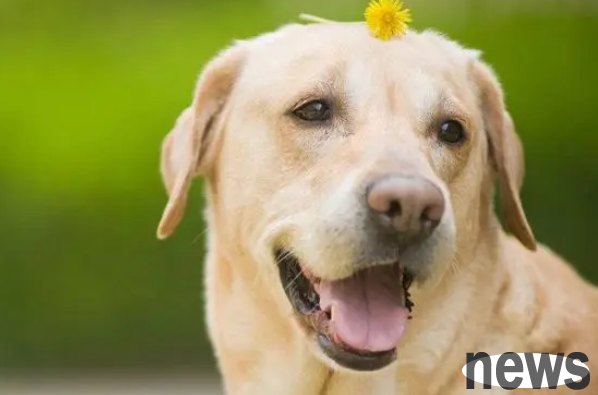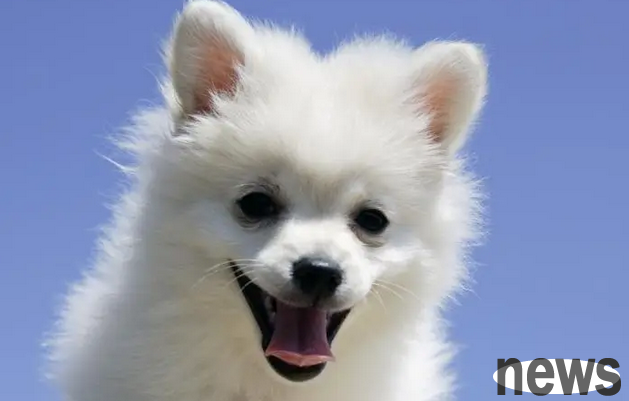If you have a cute puppy at home, you will definitely be happy about its growth and health.
But, do you know? The puppy will go through an important stage between 3-8 months - the dental change period.
During this period, the puppy's breast teeth will gradually fall off and the permanent teeth will grow out one after another.
This is a painful and happy process for the puppy.

So, as a novice owner, how should you provide the right care for your puppy?
Let’s learn about it together!
First, we need to know the puppy’s tooth replacement timeline.
Generally speaking, puppies will start to grow breast teeth around 3 weeks after birth. There are 28 mammary teeth, divided into incisors, canine teeth and molars. The breast teeth are tender and white, thin and pointed. After about 2 months, all the breast teeth will grow intact.
Starting from 2-4 months, the puppy will gradually change the first breast incisor.
At 5-6 months, the second and third breast incisors and all breast canine teeth will be replaced.
After more than 8 months, all teeth will be replaced with permanent teeth. There are 42 permanent teeth in total, 14 more than breast teeth.
The constant teeth are light yellow, thick and strong.

Secondly, we should pay attention to the performance and problems of puppies during tooth replacement.
During teeth changing, the puppy's gums will itch and swell, which will make it feel uncomfortable and painful.
Therefore, puppies will have the following symptoms:
Like chewing things
Puppies will relieve discomfort in the gums and promote the fall of old teeth and the growth of new teeth. It may bite furniture, wires, toys, clothing, shoes, and anything else that can be bitten.
Bad breath and bleeding
When a puppy changes teeth, some blood may remain in the mouth, resulting in poor breathing. At the same time, due to the decrease in immunity, the mouth is also prone to bacteria and inflammation.
Decreased appetite and indigestion
Puppies may refuse to eat hard food or eat very little due to discomfort in teeth when changing teeth. This can affect its nutritional intake and digestive function.
Emotional fluctuations and mental depression
When a puppy changes teeth, it may become anxious, sensitive, irritable or depressed due to physical and psychological discomfort. It may show an aggressive or retreating attitude towards its owner or other animals.
Finally, we want to provide the puppy with the right care method. In order to allow the puppy to successfully pass the dental change period and maintain healthy and beautiful teeth, we can do the following:
Check dangerous items and items that cannot be bitten
In order to prevent the puppy from causing damage or damage after biting, we must properly put away the home wires, power supplies, detergents, shoes and other dangerous items or items that cannot be bitten and put in a place that the puppy cannot reach.
Prepare teeth grinding toys and snacks
In order to meet the chewing needs of the puppy, we need to prepare some teeth grinding toys and snacks suitable for it, such as rubber toys, bite ropes, grinding sticks, chicken jerky, etc. These things not only make puppies happy, but also clean the mouth and exercise teeth.
Relieve the pain of teeth
To relieve the discomfort and pain in the puppy, we can make it contain some things that can relieve pain and itch, such as ice cubes, ice towels, frozen carrots, etc. However, you should pay attention to time and temperature and do not let it eat too much cold things to avoid causing diarrhea or cold.
Observe the growth status of new teeth
When new teeth grow, we should pay attention to whether they are blocked by old teeth, resulting in double rows of teeth or irregular teeth. If this situation is discovered, we should help the puppy remove loose old teeth in time, or ask a pet doctor to deal with it.
Supplement of calcium and nutrition
In order to allow the puppy to grow a mouthful of strong and whiten permanent teeth, we must pay attention to supplementing it with sufficient calcium and other nutrients. We can feed it some calcium-rich foods, such as dairy products, bones, etc., or take it some calcium tablets or vitamins. At the same time, we should also provide it with a balanced diet to avoid foods that are too greasy or too hard.
More care and companionship
The tooth change period is the period when the puppy needs the care and companionship of the owner when growing up. We should talk, play and caress the puppy more so that it can feel our warmth and safety. We must also patiently educate and correct its behavior, avoid excessive punishment or ignoring it. In this way, we can cultivate a happy, healthy and obedient puppy.